The archiving of parish records
Features
Diocesan Archivist Michael Rogers provides helpful guidance and tips for parishes so priests and administrators understand what kinds of parish records need to be archived
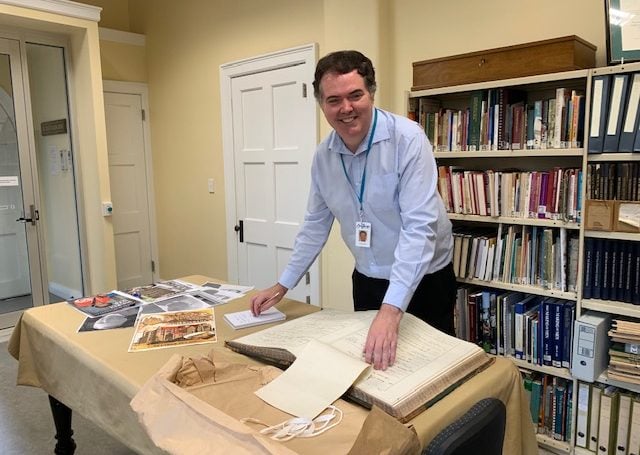
The Records and Archives Centre is blessed with many records from parishes, some dating back to the 1870s. We continue to encourage parishes to be proactive in locating, reviewing and transferring records of historical value to the Archives.
Over the previous year, I have been developing guidance for parishes and other parts of our Diocese to assist in managing their records and working out when they can be ‘disposed’ – for an Archivist, ‘disposal’ also means transferring items to the Archives.
Most of the parish records held by the Archives can be divided into the following series:
- Church registers
- Minutes, Reports and Papers of the Parish Council (and other groups, e.g. Mothers Union)
- Parish Rolls
- Correspondence files.
There can also be a varying mix of mementos, plans, publications and photographs – either gifted to or created by a parish.
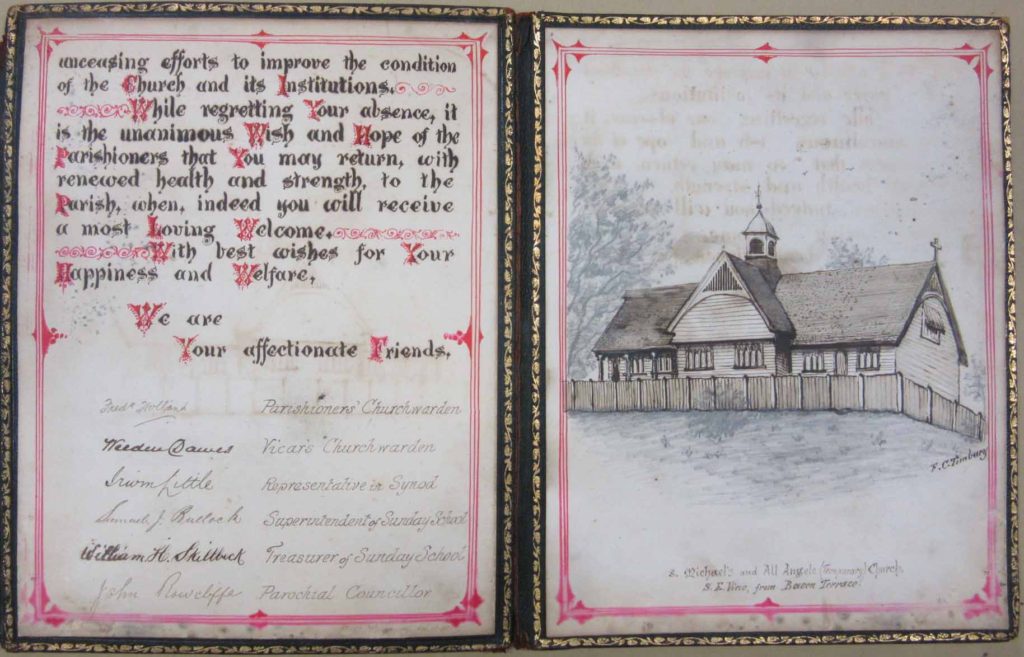
Memento of Appreciation presented to The Rev’d Walter Thompson by the Parishioners of St Michael and All Angels, New Farm in 1898

Image of St Augustine’s, Hamilton showing the old church and the construction of the new church, circa 1920
One parish publication, which varies in content and value is the newsletter, also known as the ‘Parish Paper’. This is usually published monthly and can contain very important historical information, which is valuable not only for the parish, but for future researchers.
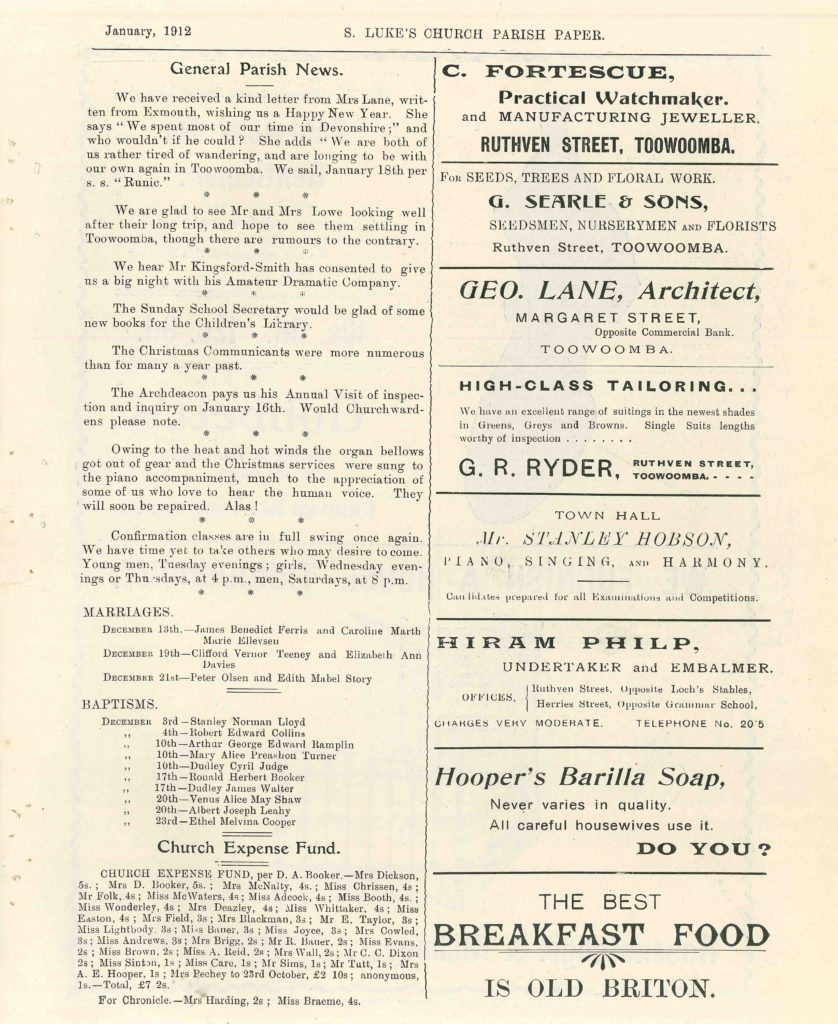
St Luke’s, Toowoomba Parish Paper from January 1912, noting marriages and baptisms
A historically valuable newsletter usually includes:
- a monthly letter from the parish priest or rector
- new arrivals or departures (in terms of clergy or administration)
- basic details regarding who has been baptised and married within the parish for the previous month, and the funerals that have been held.
Some newsletters, however, simply record upcoming services and events, and the contact details of clergy, parish council, and administrative staff. These details are either captured in the Church Service Register, Annual Reports of the Parish Council or Mothers Union, or the Diocesan Year Books.
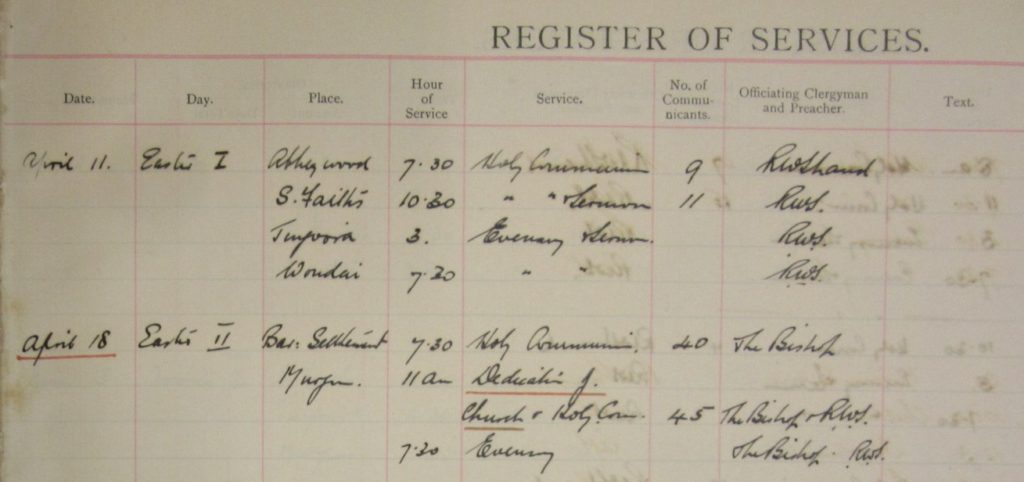
Murgon Service Register showing details of the dedication of Christ Church on 18 April 1920
Parishes should, as part of regular practice, conduct an annual inventory of what records they hold and decide what they no longer need to keep and what they should be transferring to Archives. When destroying records, parishes should ensure they are properly shredded or placed in secure destruction bins.
As part of ongoing preservation of the collection, we often locate items within parish boxes which do not have historical value, and which should not have been transferred to the Archives. This includes low-level financial records (such as invoices and receipts) and publications of local councils or businesses. We ensure that these records are appropriately disposed of and that their destruction is recorded.
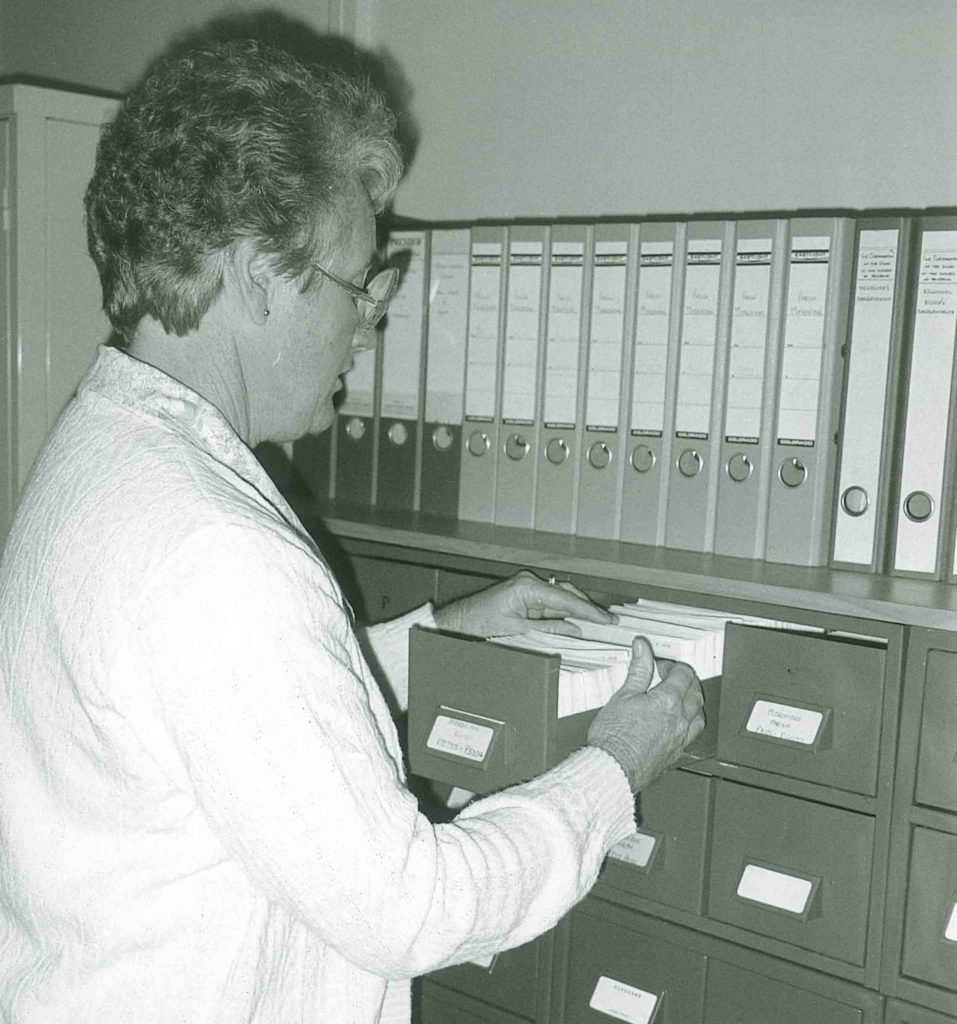
Patricia Ramsay, first Diocesan Archivist, conducting some research in the Arnott Reading Room, Church House in 1991
The main records that parishes should transfer to Archives are their Church Registers of baptisms, marriages, confirmations, services and funerals. These should be transferred either when the last page has been filled or when the first entry is over 25 years old.
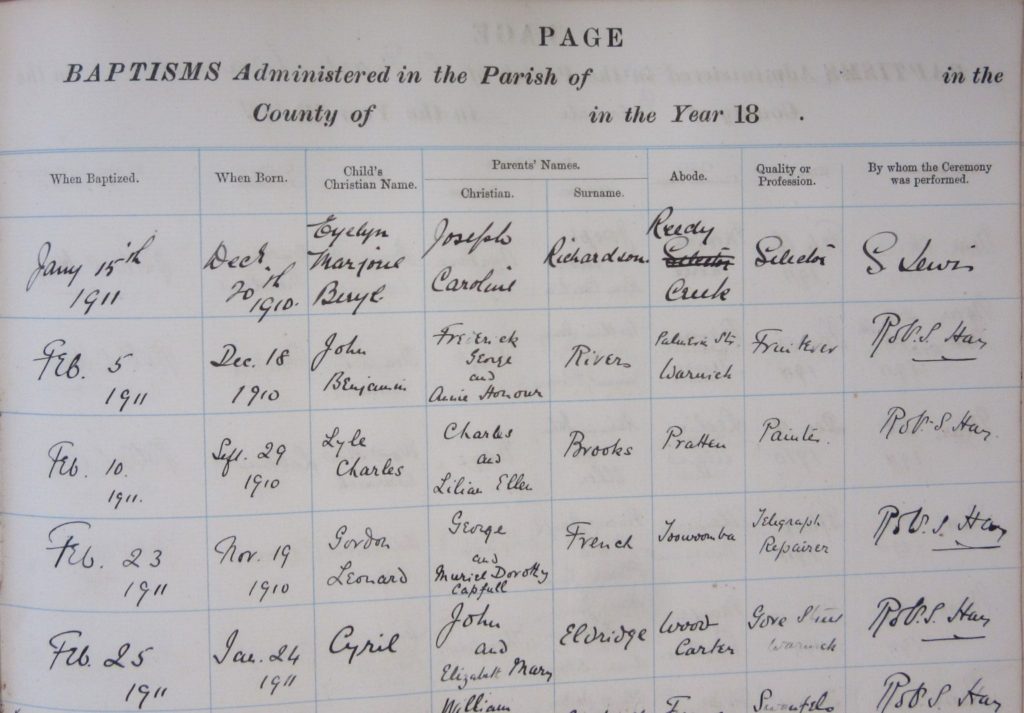
Image of Warwick Baptism Register entries from January and February 1911
For parishes, current and future guidance on managing records (including disposal schedules and preparing records prior to transfer), can be accessed through the Parish Portal – I hope to soon publish a Retention and Disposal Schedule for parishes. I also promised, in my last anglican focus article, written guidance on the value of photographs. I hope to have this published soon.
Top 5 tips for Archiving parish records
- Make the review and transfer of historical records part of regular business activity
- Make sure you send Church Registers to Archives, even if the register is incomplete
- Make sure your Parish Paper / newsletter has historical value prior to transfer
- Dispose of low-value records when their retention period lapses
- If unsure as to the value of the record or records, contact the Archives team on 07 3835 2333 or via archives@anglicanchurchsq.org.au
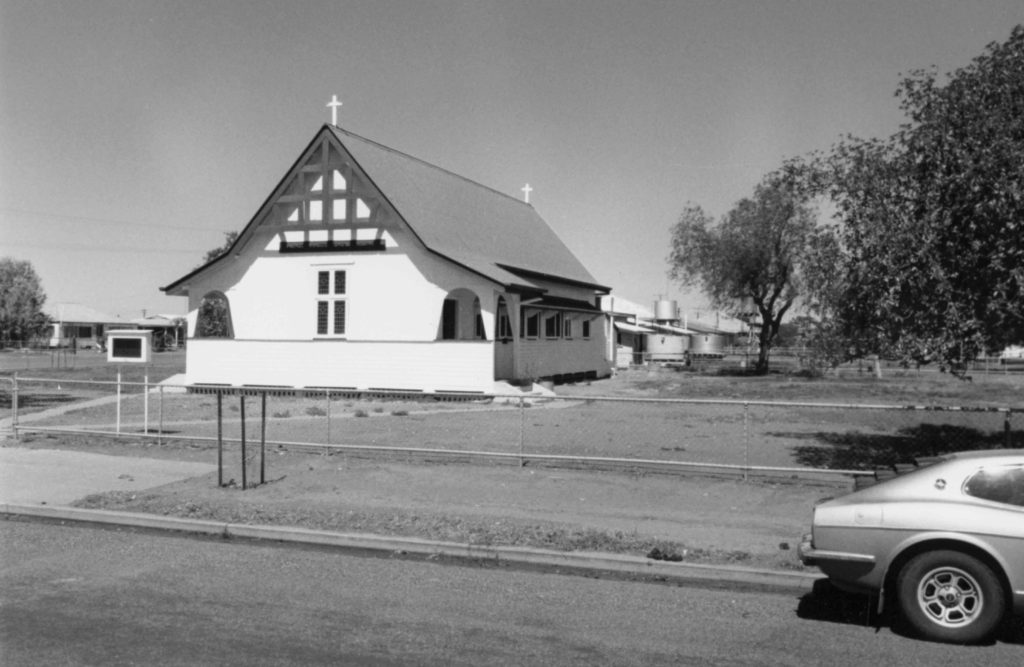
Image of All Saint’s Chapel, Charleville (date unknown)






